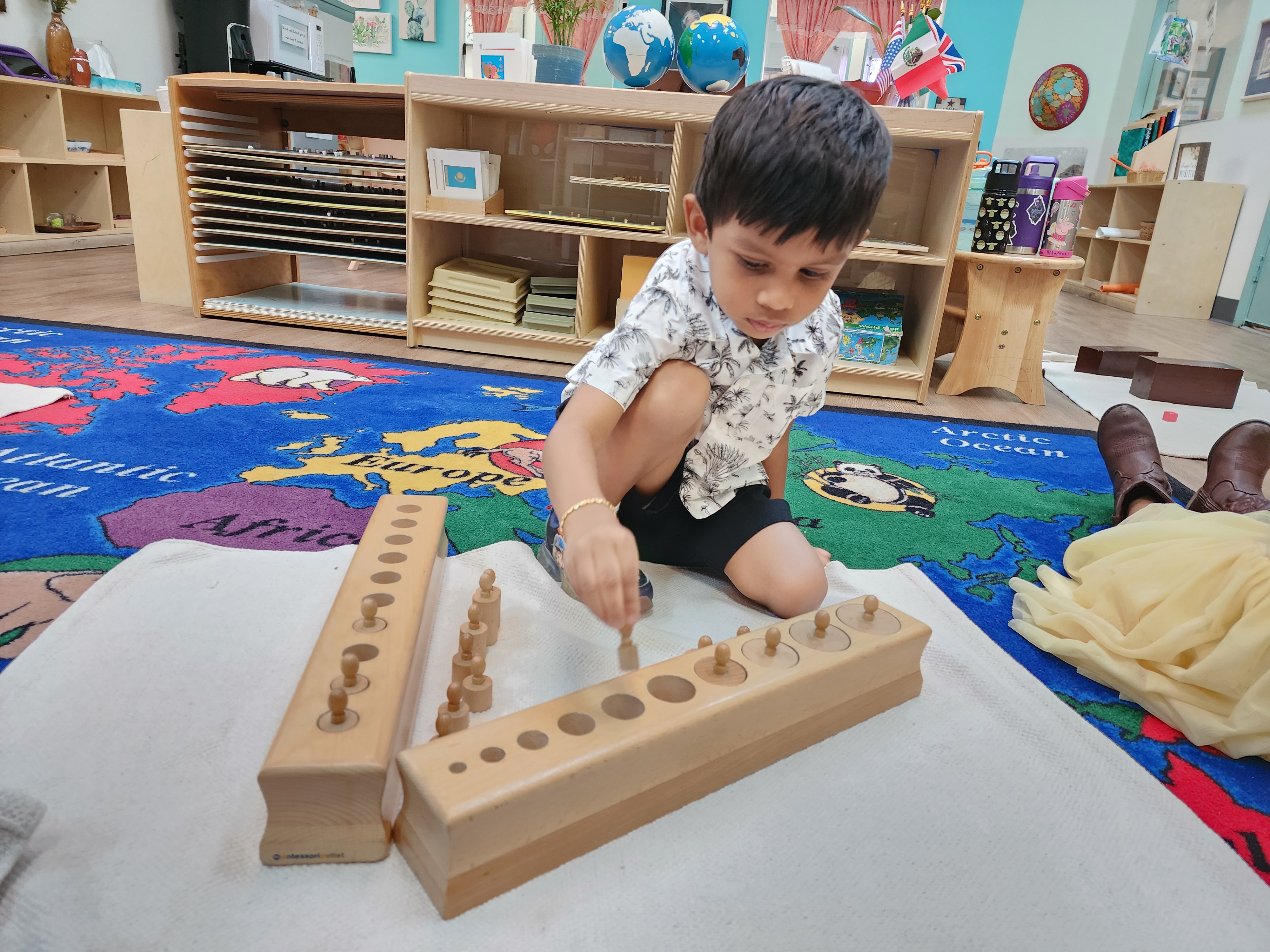Building a Strong Foundation: The Benefits of Montessori Education from Daycare to Elementary

Montessori education is a unique and highly regarded approach to early childhood education, known for its emphasis on child-centered learning and hands-on activities. The benefits of Montessori education extend beyond the preschool years and can have a lasting impact on a child's educational journey from daycare to elementary school.
One of the key benefits of Montessori daycare education is its focus on building a strong foundation for learning. The Montessori method recognizes that children learn best when they are actively engaged in their own education. By providing a carefully prepared environment with a wide range of educational materials and activities, Montessori educators encourage children to explore, discover, and learn at their own pace. This approach fosters a love of learning and helps children develop important skills such as critical thinking, problem-solving, and creativity.
In a Montessori classroom, children have the freedom to choose their own activities and work independently. This autonomy and sense of responsibility for their own learning not only helps children develop self-confidence and self-discipline but also allows them to develop a sense of ownership over their education. This sense of ownership can have a profound impact on a child's academic journey, as they become actively engaged in the learning process and take pride in their accomplishments.
Another benefit of Montessori education is its focus on individualized instruction. Montessori educators recognize that each child has unique strengths, weaknesses, and learning styles. By observing and understanding each child's individual needs, Montessori teachers are able to tailor their instruction and provide personalized support. This individualized approach ensures that children are able to progress at their own pace and reach their full potential.
Montessori education also emphasizes the importance of social and emotional development. In a Montessori classroom, children learn to work collaboratively, solve conflicts, and develop strong communication skills. The mixed-age classrooms found in many Montessori schools provide opportunities for older children to mentor and support younger children, fostering a sense of community and empathy. This focus on social and emotional development not only helps children develop strong interpersonal skills but also lays the foundation for positive relationships and a healthy emotional well-being.
Transitioning from a Montessori daycare to a Montessori elementary school can also have numerous benefits. The continuity of the Montessori method from preschool to elementary allows children to build on the foundation they have established in their early years. They continue to develop their love of learning, critical thinking skills, and sense of responsibility in a familiar and nurturing environment.
Montessori elementary classrooms are designed to meet the unique needs of elementary-aged children. The curriculum expands to include more advanced subjects such as mathematics, science, language arts, and cultural studies. Montessori educators continue to provide individualized instruction and encourage children to take ownership of their education. The multi-age classrooms in Montessori elementary schools also provide opportunities for children to learn from and collaborate with peers of different ages, promoting social and emotional growth.
In conclusion, Montessori education offers numerous benefits that extend beyond the preschool years. From daycare to elementary school, the Montessori method provides a strong foundation for learning and fosters important skills such as critical thinking, problem-solving, and creativity. Through individualized instruction, a focus on social and emotional development, and a continuity of the Montessori approach, children are able to thrive academically, socially, and emotionally in a nurturing and child-centered environment.
